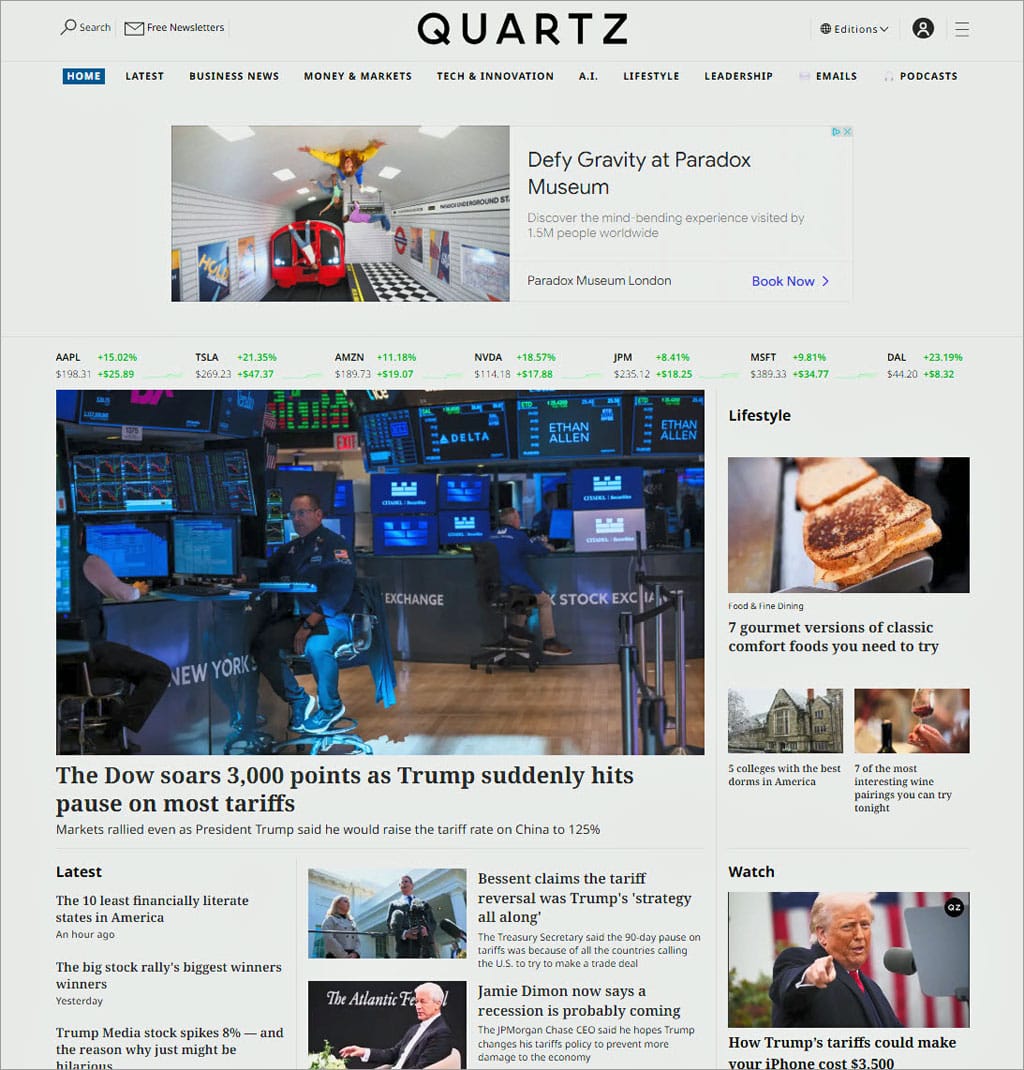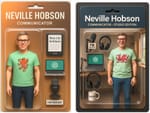A few days ago, digital news publication Quartz was the subject of a final news story – not breaking news or a business analysis, but an obituary. Not for a person, but for itself.
Written by Zach Seward, one of its co-founders and its final owner, the piece is a surprisingly heartfelt eulogy for a publication that once promised to redefine journalism for the digital age.
Founded in 2012 by Atlantic Media, Quartz set out to be a bold experiment: a global business publication born for mobile, targeting a new kind of reader – the “global nomad,” as they often called them.
Here's how they described Quartz on its 'About' page at launch in 2012 (the page today gives a 404 error):
"As we build Quartz, we are focused on the touchscreen and mobile devices that increasingly dominate our lives. Our design began with the iPad foremost in mind, and we modified it from there to suit smartphones and, finally, personal computers. Your experience with Quartz should befit the hardware you visit us with and shift as seamlessly as you do from phone to tablet to laptop and back again. Call us a website or, if you like, a web app: Quartz combines the benefits of the free and open Web with the elegance of an application."
I remember being captivated by this vision when I interviewed Kevin Delaney, Quartz’s founding editor-in-chief, for the For Immediate Release podcast a few months before the autumn launch.
Kevin described a newsroom designed from scratch for a digital-first world – no print legacy, no “shovelware” from other publications, and a strong editorial point of view that aimed to meet business professionals where they were: on their phones, travelling, and overwhelmed by content. He talked about how Quartz would break away from the click-chasing mentality and create something that felt thoughtful, valuable, and global in scope.
Two years later, I interviewed Jay Lauf, the publisher, who added more colour to the Quartz model. Jay spoke of Quartz not just as a media outlet but as a product – design-led, uncluttered, and powered by insights. Their famous “obsessions” (rather than standard beats) were a perfect example: a way to track the evolving trends that mattered most without being shackled to outdated topic categories.
Innovation Without Profit
Quartz was genuinely innovative. From its clean, ad-light interface to its clever newsletters and a unique voice that often treated readers like peers rather than consumers, it seemed like a glimpse of what journalism could be in a post-print, post-pageview world.
Its 2018 venture into online television broadcasting with Quartz News on Meta's Facebook Watch video-on-demand service showed promise. But it lasted less than a year.
It had brilliant ideas about conferences and other events and how to make a lasting impression.
Yet Quartz never quite worked as a business.
In Zach Seward’s final post, he openly admits Quartz “never made money.” Its revenue model, though rooted in smart native advertising and thought leadership content, was hard to scale. Over the years, it was bought and sold, its editorial direction subtly shifting, its newsroom shrinking, and its once-clear identity slowly diluted.
A decade on from its founding, even sympathetic retrospectives such as this 2022 piece in Intelligencer noted the publication’s struggle to maintain its early promise, with internal cultural tensions and strategic misfires playing a role.
The Final Decline
Its final chapter may be the most disheartening. As TechCrunch reported earlier this year, Quartz had begun quietly publishing AI-generated news articles – a stark departure from its founding principles of journalistic integrity and editorial depth.

What started as a confident challenger to The Economist or Financial Times became just another content engine drifting into the AI slop pile.
The remaining employees were let go in early April.
A Legacy of Influence
Zach’s post is deeply personal, and in reading it, I couldn’t help but feel a mix of admiration and sadness. Admiration for the audacity of Quartz’s original mission – and sadness that even bold, visionary ideas can’t always survive the brutal economics of digital publishing.
But Quartz did leave a mark. It influenced the design and tone of countless digital publications. It proved that a publication could be mobile-first, data-informed, and globally minded without compromising on editorial quality. It also helped shape a generation of journalists and readers alike who now expect more clarity, context, and purpose from their news.
The interviews I did with Kevin and Jay – still available on my archive blog, links below – remind me that Quartz was always more than a news magazine. It was an idea. And like many great ideas in media, it burned brightly for a time, even if it couldn't sustain the flame.
Farewell, Quartz. You showed us a glimpse of what digital journalism could be.
Related Reading:
- FIR Interview: Kevin Delaney, Editor in Chief, Quartz (19 July 2012)
- FIR Interview: Jay Lauf, Publisher, Quartz magazine (31 March 2014)















